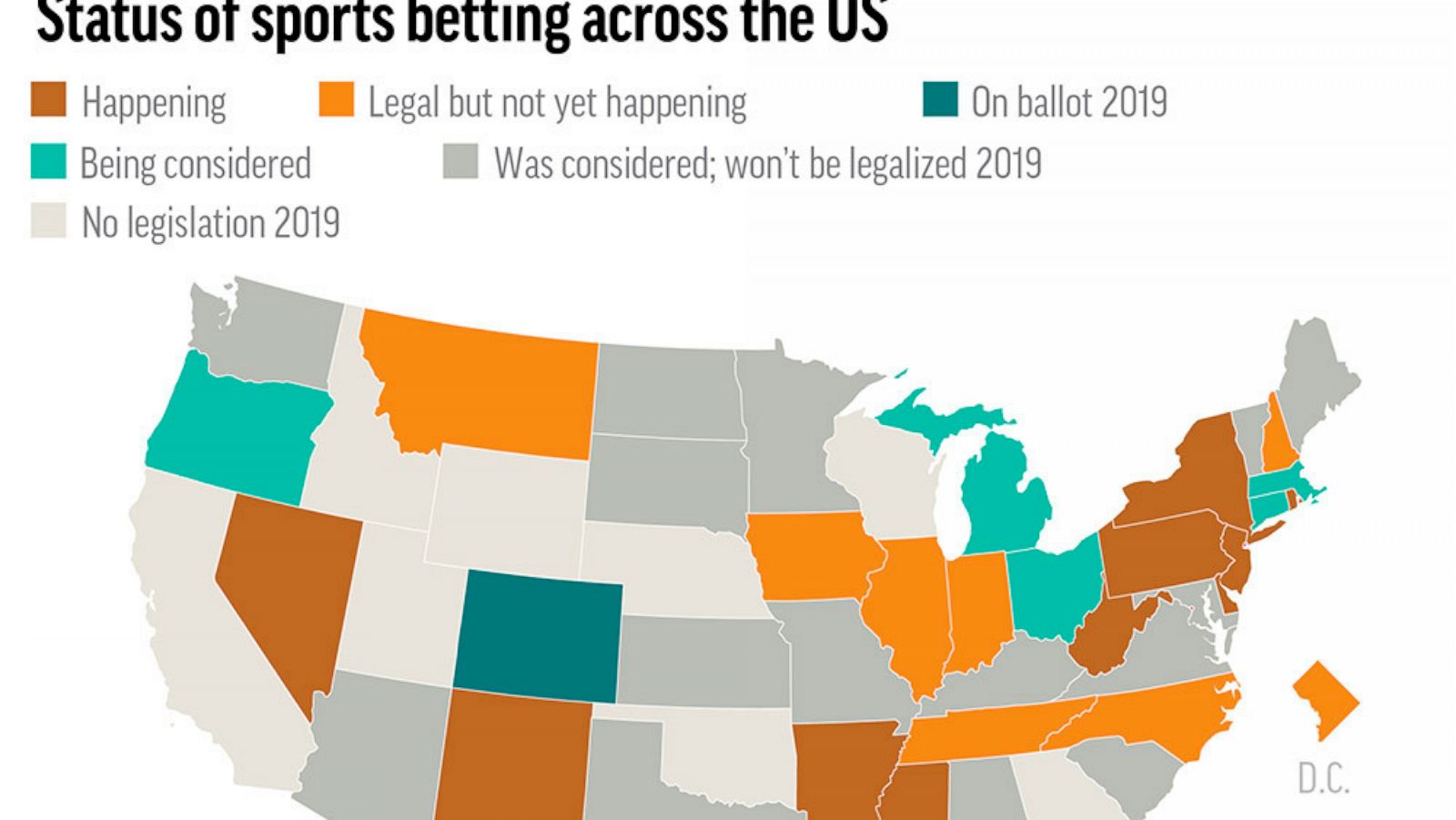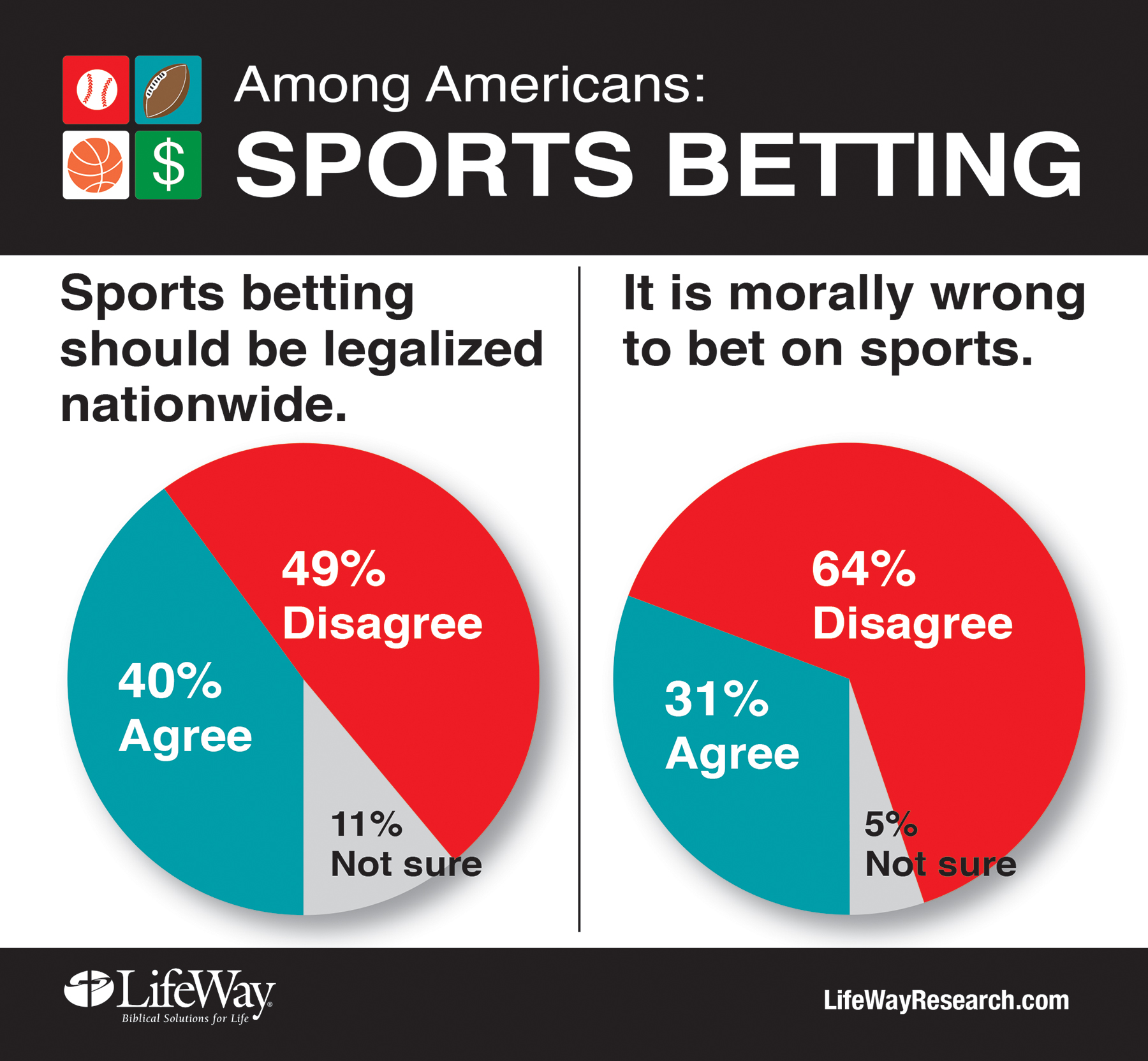When discussing legal online sports betting, the majority of America's government has a very regressive, prohibition-style attitude towards it, buying into a negative perspective concerning the morality of gambling entertainment. This is what has led to a variety of state gambling laws in the past.
Sports Betting Is Ingrained in U.S. Culture Although the expansion of legalized sports betting across the U.S. Has rightfully become an increasing focus, many investors might not realize that. Gambling in the United States is legally restricted. In 2008, gambling activities generated gross revenues (the difference between the total amounts wagered minus the funds or 'winnings' returned to the players) of $92.27 billion in the United States.
There are no US federal laws that make it a crime for Americans to place bets at offshore sportsbooks that are operating legally within the industry. There are two states that legally prohibit all online gambling, domestic or offshore, leaving residents in Connecticut and Washington without legally sanctioned online betting options, though they have yet to start enforcing those restrictions.
For the most part, state lawmakers are becoming more progressive concerning betting entertainment and recognize the value that this type of revenue stream can bring to a state. Individual states are actively analyzing what the legalization of domestic sports gambling can provide them with in terms of opportunities, tourism, and tax revenue, and many have already taken action one way or the other through new legislation.
Iowa, Nevada, New Jersey, Oregon, Pennsylvania, Rhode Island, and West Virginia currently permit state-regulated online sports gambling, with nearly two dozen additional states having launched land-based sportsbooks. Individual territories began embracing sports betting the moment that PASPA was ruled unconstitutional by the Supreme Court in the infamous NJ case, with multiple states having had their legislation ready and waiting should the ruling go in the Garden State's favor.

Below we'll take a look at the relevant US federal gambling laws, and explain how state gambling laws intersect with federal laws to impact online and brick and mortar sportsbook gambling, as well as what these laws have to say about the legal status of offshore sports betting entertainment.
The Federal Laws on the Books

The sections below will detail and explain how each major federal law affects domestic gambling opportunities in the US.
The Federal Wire Act
Passed back in 1961, the Federal Wire Act was made law in an effort to curtail the illegal gambling activities taking place over the phone by organized crime syndicates. It prohibited the transmission of wagers or betting information from being carried across state lines via telegraph or telephone. The Federal Wire Act targeted these illegal bookie operations as a means to curb the mafia from manipulating games and making a profit through these tactics.
This law was strictly focused on interstate gambling, and only targeted those accepting bets and not the individuals placing the bets. The goal was to crack down on illegal gambling services, not prosecute bettors. Between the DOJ Legal Opinion of 2011 and the repeal of PASPA, today's application of the Wire Act prohibits any gambling business from accepting bets across state lines or from foreign sources.

With the changes still being implemented, we are not sure yet how this will affect those states that had entered into interstate gambling pacts with one another, sharing player pools for their online gambling initiatives. Once that aspect of the legal situation becomes more clear we will update that information here.
The Professional and Amateur Sports Protection Act
Also known as the Bradley Act, or just PASPA, the Professional and Amateur Sports Protection Act was a sweeping federal regulation that passed in 1992, with the supposed intent of protecting the integrity of sports by making sports betting illegal.
At the time the bill was passed, there were sports lotteries in Delaware, Montana, and Oregon, as well as licensed and regulated sports betting in Nevada, so those four states were exempt.
The law effectively prevented the expansion of the sports betting market throughout the United States in what many categorized as a discriminatory law that favored a few states while restricting others.

New Jersey took on the mission of challenging the law and after several years of court battles, was given a favorable outcome by the highest court in the land as SCOTUS ruled PASPA as unconstitutional, nullifying the law.
As of May 14, 2018, each individual state now has the authority to dictate sports betting laws within their borders. They can now choose to authorize or prohibit sports betting at their pleasure. Following PASPA's repeal, we have seen multiple states move forward with legislation that legalizes sports gambling at the state level.
The Unlawful Internet Gambling Enforcement Act
This is the big one that shook the gambling industry to its core. Online gambling really started to explode during the early 2000's, especially in the realm of online poker. In 2006, then-President Bush signed into law the Unlawful Internet Gambling Enforcement Act, known all over as the UIGEA. In a nutshell, the UIGEA placed very stringent regulatory restrictions concerning how gambling-related transactions could be processed.
The most reputable sites started a countdown and allowed Americans to withdraw and closeout their accounts. Many trusted gambling sites left the US market at this time. After the dust settled, and the financial and gambling industries learned how to comply with the regulatory oversight provided by the UIGEA, many of these reputable gambling sites have returned to provide services to US sports bettors.
The UIGEA did end up making the online gambling market safer for both the bettors and the operators by imposing a more reliable and stricter regulatory structure for how gambling-related transactions are processed. Gambling sites invested in top tier payment processors while all parties implemented higher-level security protocols to ensure the validity and safety of those transactions that are processed.
While US online gambling funding options are still somewhat limited in some regards, things have stabilized. The emergence of cryptocurrencies have filled the void left by the elimination of US-friendly e-wallets and failed credit card transactions. The UIGEA does not make it illegal for Americans to gamble online. The law simply regulates how online gambling transactions are processed.
The 2011 Department of Justice's Interpretation of Federal Laws
With the growth of online commerce, several states became interested in offering lottery game services online. This raised questions concerning the application of the Federal Wire Act, driving the DOJ to issue a clarification of the law's reach.
The Department of Justice ruled, and accurately so, that the federal government had no right to tell states that they could not sanction online gambling and therefore established that each US state has the authority to determine their own fate concerning online gambling with the exception of sports betting.
The repeal of PASPA took care of freeing sports gambling as the last remaining federally prohibited form of state-regulated online gambling. As of now, all 50 states have the legal ability to legalize and offer online gambling such as casinos, poker, bingo, and sports wagering. To date, only a handful of states have taken advantage of legal domestic online gambling. However, many states have pending bills to allow various forms of sports betting.
The 2019 DOJ Interpretation of Federal Gambling Laws
Following the repeal of PASPA in 2018, the reach of the Federal Wire Act has again come into question. In a new interpretation, which many believe was coerced by anti-online gambling activist Sheldon Adelson, the Department of Justice has indicated that the Wire Act prohibits not only interstate wagers but also the sharing of information across state lines.
This determination will certainly harm those states that have entered into interstate gambling compacts to share player pools and resources with other states. The opinion is being formally challenged through a lawsuit headed up by New Hampshire. As the situation unfolds, we will provide updates here.
What You Need to Know Going Forward
All of this legal information is good knowledge to have under your belt, no doubt about it. However, all you really need to know going forward is that there are no federal laws making gambling illegal in the United States either online or offline, and this includes domestic and offshore sports betting. States now determine the legal status of all gambling entertainment within their borders. As a sports betting resource guide, we want to make this point clear.

For those of you interested in betting on sport but who live in a state that has not authorized state-regulated sportsbooks, you'll have to either travel to a state with legalized sports betting or use a legitimate offshore sportsbook such as the ones you find listed on this site. You can check out our list of states that allow sports betting here or follow our list of recommended online sportsbooks.
US Gambling Laws
Articles
Latest Legal News
Is Sports Gambling Legal In Massachusetts
Panic In Detroit: Michigan Online Sports Betting Still Six Weeks Away
When discussing legal online sports betting, the majority of America's government has a very...
DraftKings Makes Preemptive Sports Betting Strike In Connecticut
When discussing legal online sports betting, the majority of America's government has a very...
LA, MD & SD Voters Approve Of New Orleans, Baton Rouge, & Baltimore Sportsbooks
When discussing legal online sports betting, the majority of America's government has a very...
Tennessee Sports Betting Begins Today With Support From Innovative Tech
When discussing legal online sports betting, the majority of America's government has a very...
Offshore Sportsbook Seeks To Secure Domestic License In New Jersey
When discussing legal online sports betting, the majority of America's government has a very...